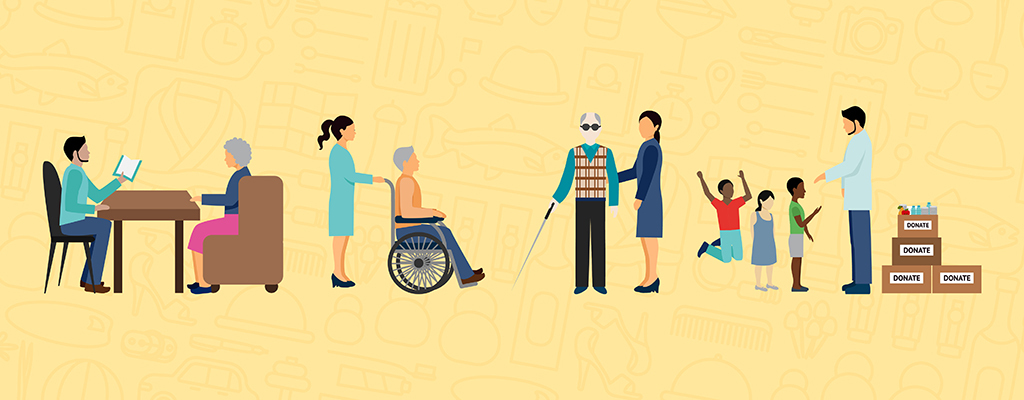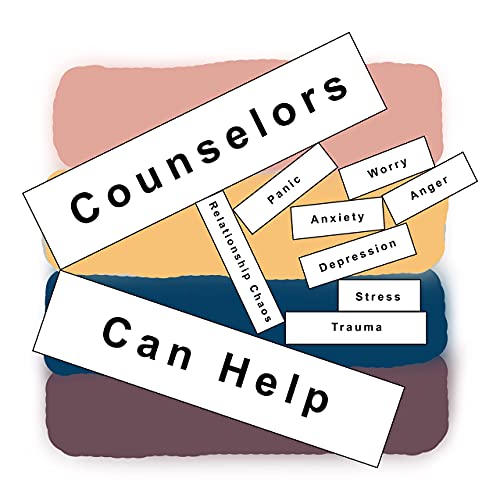Mental health is just as important as physical health. People need to take care of their minds, just like they take care of their bodies. People might not know how to find the right types of mental health professionals for them, but it’s important to find someone who can help. This can be a daunting task, but it doesn’t have to be. It’s important to remember that you’re not alone in this process and there are people who want to help you. In this blog post, we will discuss the different types of mental health professionals and which one might be best for you.
What Is Mental Health?

Mental health is a state of well-being in which every individual realizes his or her own potential, can cope with the normal stresses of life, can work productively and fruitfully, and is able to make a contribution to her or his community.
There are many different types of mental health professionals. The most important thing you need to do when looking for one is to find someone with who you feel comfortable talking. You don’t have to be diagnosed with a mental illness to see a therapist; in fact, most people go their whole lives without ever seeing a therapist. If you’re experiencing any sort of stress, anxiety, or depression, then it might be time to see a professional.
Who Are Mental Health Professionals?
Mental health professionals are people who have been educated and trained to diagnose and treat mental illnesses. They work in different settings, like hospitals, clinics, schools, or private practice. There are many different types of mental health professionals, each with their own area of expertise. So how do you choose the right one for you?
Different Types Of Mental Health Professionals
Psychiatrists

Psychiatrists are doctors who help people who are feeling down or have mood swings. First, they do a general medical internship to learn about all the different types of medicine. Then, they specialize in psychiatry and learn about all the different treatments that can be used to help people with depression or bipolar disorder. Before prescribing any medication, psychiatrists always consider all available treatment options. Lastly, psychiatrists must stay up-to-date with medical research and changes in treatment so they can continue to provide the best possible care for their patients.
Some people are told that they just need to see a doctor in order to transition. This is not always easy because it might take time to find a doctor who understands transgender issues. Then the person would have to talk to the doctor for 10 minutes and leave with a prescription. This is not how it works! Psychiatrists are therapists who have gone through specific training in order to prescribe psychiatric medications. Psychiatrists are different than other doctors. They help people who have mental health problems and prescribe medication. The other doctors may prescribe medication too, but psychiatrists do it more often. Medication can make you feel better and has side effects, but the doctor will help you with them if they come.
Qualifications
To be a psychiatrist, you need to go through 4 years of medical school. Then you will do an internship where you work with all different kinds of patients. You will also spend some time working with psychiatric patients during your general internship. This will help you gain experience working with these types of patients. First, you need to work as a psychiatrist for 3-5 years and then work with other kinds of patients.
Training
Psychiatrists go to training and school. Psychiatrists also help people with their brain and how it feels. They use powerful medicines that change how people feel inside their heads. The psychiatrist needs to know what the medicine is doing and whether or not it is working. They need to watch for bad things that happen after taking the medication, too. If they find a problem, they need to figure out how to take the person off of the medicine without hurting them.
To be a competent psychiatrist, they must also stay up-to-date with changes in psychiatric medicine. Psychiatrists need to keep up with the latest research findings on different medications. This will help them understand how well a medication works, any side effects it might have, and how it might interact with other medications a person is taking. Doctors regularly go to conferences and seminars to learn about the latest medical studies. They also research at colleges around the country. Additionally, they read journals and articles to keep up with the latest findings.
A psychiatrist must know about new treatments for patients and how they affect people. They also need to know about different conditions, like Alzheimer’s disease. Psychiatrists who specialize in a certain conditions like mood disorders will need to know about the latest research on that condition. Psychiatrists are expected to continue their education by taking classes and learning about new treatments. This will help them stay up-to-date on changes in the medical field.
Clinical Psychologists

There are many definitions out there of what a clinical psychologist actually does. This Wikipedia page for example gives three different definitions:
1) ‘Clinical psychologists work with their patients using psychological tests and assessments to diagnose mental health disorders.’
2)’ They also play a role in research…’
3) ‘They may conduct scientific research on the mental processes and behavior of individuals or animals under carefully controlled conditions.’
Whether these are actual ‘different’ definitions, is arguable.
In summary, I think that the following definition from The British Psychology Survey captures what clinical psychologists do: “Clinical psychologists work with people, families, and carers. They help them when they have learning or behavior problems”. “They provide psychological treatment for neurotic, stress-related, and behavioral problems such as phobias and compulsions”.
Clinical psychologists diagnostically evaluate patients before developing a treatment plan together with them to treat their specific problem(s). A psychiatrist (or researcher) usually oversees this process, although cognitive-behavioral therapy, interpersonal therapy, or pharmacotherapy may also be used to help patients.
Clinical psychologists can help people with mental disorders. Some clinical psychologists specialize in different things, such as education or research. They also provide counseling to young people about jobs, relationships, and more. Clinical psychologists might work at a community center, hospital, university, or school.
Qualifications
Degree levels required for clinical psychologists vary across countries. In the US, licensing is granted according to these 3 categories of degree:
1) Allowed to diagnose mental disorders and can provide cognitive-behavioral therapy
2) Can prescribe medication
3) Can provide psychotherapy
In order to become a Clinical Psychologist, you need to have a doctorate degree in psychology from an accredited university. You will also need specialized training in clinical psychology.
Some psychologists specialize in one type of patient. To do this, they need to take more classes and get a degree that is specific to the type of patient they are working with.
Training
Clinical psychologists are trained in a variety of theories and treatments used to assist their clients. These include Freudian theory, Adlerian Theory, Gestalt Therapy, Rational-Emotive Therapy, Cognitive Behavioral Therapy (CBT), Eye Movement Desensitization and Reprocessing Technique (EMDR), Psychoanalysis, Attachment Theory, Reality therapy, Person-Centered Therapy/Gestalt therapy, Group Psychotherapy, Family Therapy techniques such as Bowen’s family systems theory or Minuchin’s structural family therapy.
Most mental healthcare professionals complete some type of general training after earning their bachelor’s degree (around three years). This often takes Master’s level qualifications for those entering who hold only a Bachelor’s degree. Most countries have different requirements for people who want to become psychologists. The requirements for this job usually include studying how people develop normally and abnormally across their lifespan, as well as learning about assessment and treatment methods for adults.
Counselors

Counselors are people who hold expertise in caring about your well-being and helping you through tough times. They use their professional skills, knowledge, accreditation, and experience to help other people do better in life. Counseling is not only limited to one profession; it can include social workers, therapists, psychiatrists, psychologists, and licensed counselors. People who give advice on how to deal with problems like abuse or addiction can be called counselors.
Qualifications
There are different requirements in different states to become a counselor. However, there is usually an educational requirement in order to practice counseling. Most employers require their counselors to hold master’s degrees. But sometimes, bachelor’s degree holders can get jobs as long as they have enough experience. The highest level of education for counselors is a doctorate degree. After finishing this level, counselors must pass a state examination. They will also need to get a license or certification from the state board before they can work officially.
When someone decides to be a counselor, it doesn’t mean that he has decided his path in life already. Counselors may choose several career paths after graduating from college with plenty of knowledge and skills about counseling. They could be therapists or psychiatrists even though they don’t have medical degrees. Social workers can also be counselors. Their work is not to give mental health advice but to provide assistance in social services and humanitarian efforts.
Training
Counselors are trained in different fields depending on what kind of counseling they are doing. Counselors with master’s degrees might choose to work with children, families, couples, groups, or individuals. Some counselors specialize in addiction areas like alcohol and drugs. Others focus on certain types of mental health conditions that affect adults like schizophrenia and the elderly like dementia. People who want to be counselors can get information about different careers by visiting college websites or reaching out to professional organizations.
Social Workers

Social workers, as defined by the Social Work Dictionary, are “professionals who help people manage and overcome challenging life situations. They do a lot of different things. They can help you with your feelings, give you advice, and teach you.
Mental health social workers help people who are having mental problems or other difficult conditions. They use skills that they learned in school and training. A social worker might help their clients with mental health issues such as anxiety disorders, depression, schizophrenia, or addiction. If you can’t do things that most people do, or if you can’t take care of yourself, it is a good idea to talk to someone who knows about your situation.
A mental health social worker can help you in many ways and here are just a few examples:
- Provide information and advice regarding community resources such as food, housing, healthcare, or substance abuse programs.
- Make sure your children are being well taken care of while you’re receiving treatment at a hospital or drug rehabilitation center.
- Discuss your daily problems with you and suggest options to solve them such as calling the police if you feel threatened at home or finding new activities to do if you feel lonely or isolated.
- Listen to your emotional problems without judgment so that you may feel more comfortable opening up about how you truly feel. This can be one of the most important parts of mental health care because it allows the therapist to gain a better understanding of your perspective.
Qualifications
To be a social worker you need to have a degree from a college in social work
You can now become an LCSW or Licensed Clinical Social Worker by getting a master’s degree in social work.
In the past, only people with a Master’s degree were allowed to call themselves “social workers.” That is no longer true. You can now get a Bachelor’s degree and be called that too. The United States Department of Labor states that becoming a social worker requires between three and five years of postsecondary education at a bachelor’s level college program. Aspiring mental health social workers want to know what kind of salary they can expect!
Training
A bachelor’s degree in social work or human services can prepare graduates for entry-level positions in the helping professions. But, it is important to note that some social work jobs require a master’s degree in social work (MSW).
Two knowledge areas are critical to earning an MSW: Human Behavior and the Social Environment; and Organizational Dynamics in Human Service Organizations. Both courses are successfully completed during the final year of the program at Marywood University.
In addition, students can take more advanced coursework from other colleges or universities while they are completing their graduate degrees. Most of the required courses have been approved for CEU’s upon completion of each class.
Mental Health Nurses

Mental health nurses are people who work in hospitals and care facilities to help people with their mental health. They do things like monitoring, diagnosing, and taking care of patients. Also, they must be familiar with the latest medication available for their patient’s treatment, as well as other medical details. They need to have a strong knowledge in both areas, which is a mix of being a nurse and a social worker.
Mental health nurses will ask questions and watch what you do to see if you need help. They will ask questions, give you puzzles, or do things with you. The nurse should then come up with an appropriate plan based on these observations. If you can do things on your own, then that is great. The nurse will support you with that. If you feel like the nurse is going to have to take care of you, they will talk to you about what is going on and how you are feeling. They may also need to refer you to other places outside of their hospital if it’s necessary.
Care facilities such as hospitals or nursing homes are one of the most common places where people work as mental health nurses. People who help others with their mental health can be called mental health nurses. One example would be working at a school that deals with children (such as an elementary school) or teenagers (such as a high school). Counselors, therapists, psychiatrists, and other mental health professionals can also work with children or teenagers.
People who are good at speaking to others about their feelings might try being mental health nurses. For example, people who were in the social work field before will find that this job will fit their skills well because you need to communicate with people who have problems with their mental health. People might also become a nurse if they want to help others but also receive an education in medicine.
Qualifications
- A Bachelor’s Degree in Nursing: This degree requires two years of science classes, such as anatomy and physiology. There are also general studies courses that will affect the kind of patients you deal with daily. You will need experience working with people in a medical setting (which you can get from your schooling), and there are areas of specialization available once you complete your education.
- Licensure: You can’t work as a mental health nurse until you’re licensed in the state that you live in. There is an exam that you need to pass in order to become a registered nurse. Once you pass the exam, you will need to get certified by an agency that is accredited by the American Nurses Credentialing Center. This makes it easier for nurses to get jobs since they can transfer their license between states without taking the exam again.
Training
Mental health nurses are required to have hours of training in both mental health and nursing. This allows them to know how to help people with different kinds of problems. You will also need on-the-job training, which is the same thing you would do for any medical job.
Benefits Of Visiting Mental Health Professionals

- You will be able to talk about your problems and feelings openly in a safe place. This is one of the key benefits of visiting a mental health professional. You will be able to talk about anything that you’re struggling with, and they won’t judge you. They are there to help you, and they have heard it all before.
- They can give you medication if needed. This is another big benefit to visiting a mental health professional. If they feel like it’s necessary, they may prescribe medication for you that can help improve your mental health symptoms.
- Therapy sessions can teach you coping mechanisms. Sessions with a therapist can also teach you different coping mechanisms for when times get tough. This can be really helpful in preventing future episodes of depression or anxiety.
- You will be more likely to stick to your treatment plan. When you see a mental health professional on a regular basis, you are more likely to stick to your treatment plan. This is because you have someone who is supporting you and rooting for you. When you fall off track, they can help get you back on track.
- They can provide support during tough times. Mental health professionals can be a great source of support during tough times. They will be able to offer words of encouragement and advice when needed.
Negative Impact Of Visiting Mental Health Professionals

- It can be expensive. Health insurance may not cover the cost of therapy, which can range from $50 to $200 per session
- You may feel uncomfortable talking about personal problems with a stranger. This is normal and usually goes away after a few sessions
- The therapist won’t be able to solve all your problems. They will provide support and guidance, but you will need to take action on your own behalf
- It may take time before you see any improvement in your mental health. Don’t give up if you don’t feel better immediately; therapy takes time to be effective.
- You might not like the therapist’s methods or philosophy. This is okay; you are allowed to terminate the therapy session and find someone else who might be a better fit for you.
Mental health professionals are people who have gone through years of schooling in order to help people with their mental health. They come from many different backgrounds, but they all have one common goal: to help you. Psychiatrists are medical doctors who specialize in diagnosing and treating mental illnesses. They can prescribe medication, but they also offer therapy. Therapists do not need to be medically licensed, but most have a Master’s degree in psychology or counseling. They help people deal with their problems by talking about them.
Types of Mental Health Professionals: Which One is Right for Me?

There are a variety of mental health professionals available, and each has its own area of expertise. It can be difficult to decide which one is right for you, but here are some things to consider when making your decision:
- Counselors typically work with individuals or groups, and they help people deal with issues such as depression, anxiety, and relationship problems.
- Therapists specialize in helping people who have experienced trauma or abuse. They may also treat people with mood disorders, eating disorders, and addiction.
- Psychiatrists are medical doctors who diagnose and treat mental illnesses using medication and therapy.
- Psychologists have a doctoral degree in psychology and specialize in diagnosing and treating mental illnesses, developmental disorders, and behavioral problems.
Which types of mental health professionals are right for you? Only you can decide that, but hopefully, this article has helped you make a decision. Remember, it’s important to find a therapist or counselor who you feel comfortable talking to and who can help you get your life back on track.
Conclusion
Mental health professionals are not all the same. Read about their differences to find which one is right for you or your loved ones. This blog post has provided an overview of some types of mental health professionals that may be beneficial in different situations. If it sounds like any type of therapist would work, you are wrong. There is not just one kind of therapy that will help people with every problem they have. So think carefully when choosing a provider who can meet your needs. Hopefully, this article has helped inform you on what each category entails and left you feeling more confident in making an informed decision about how to move forward in getting better mental well-being with the help of different types of mental health professionals!
A Word From Therapy Mantra
Your mental health — Your psychological, emotional, and social well-being — has an impact on every aspect of your life. Positive mental health essentially allows you to effectively deal with life’s everyday challenges.
At TherapyMantra, we have a team of therapists who provide affordable online therapy to assist you with issues such as depression, anxiety, stress, workplace Issues, addiction, relationship, OCD, LGBTQ, and PTSD. You can book a free therapy or download our free Android or iOS app.


